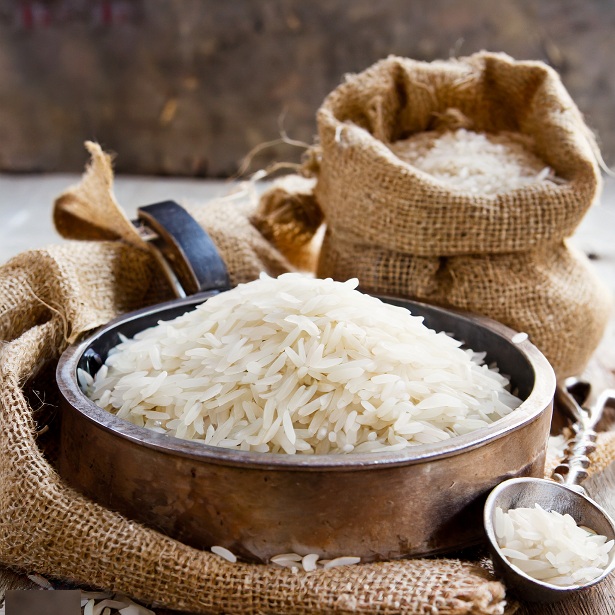Basmati rice nutrition is a topic of interest for health-conscious individuals seeking a balance between taste and nutritional value. When exploring the world of grains, it’s crucial to delve into the basmati rice nutrition facts to make informed dietary choices. Compared to its counterpart, brown basmati rice nutrition is often favored for its higher fiber content and additional nutrients retained in the bran layer.
In the realm of aromatic rice varieties, the comparison of jasmine vs basmati rice nutrition plays a significant role. While both offer distinctive flavors and aromas, understanding their nutritional profiles aids in making choices aligned with personal health goals. When considering cooked basmati rice nutrition, it’s essential to acknowledge the changes in nutrient content that occur during the cooking process, ensuring a comprehensive understanding of its impact on a balanced diet.
For those who prefer a brand-specific approach, examining royal basmati rice nutrition provides insights into the nutritional composition of a popular product. Similarly, discerning the nuances of white basmati rice nutrition allows consumers to tailor their choices based on dietary preferences and nutritional requirements.
For precise details, scrutinizing basmati rice nutrition facts 100g aids in portion control and daily intake planning. Brands like mahatma basmati rice offer their own set of nutritional attributes, contributing to a broader understanding of the diverse market offerings.
In the eternal debate of jasmine rice vs basmati rice nutrition, nuances emerge, emphasizing the importance of individual dietary needs. Additionally, for health-conscious consumers exploring organic options, the inquiry into what nutrition in organic basmati rice provides a deeper understanding of the potential benefits associated with organic cultivation practices.
Navigating the realm of rice varieties involves a holistic consideration of nutritional aspects. Whether it’s the broad strokes of basmati rice nutrition or the finer details of specific brands, a comprehensive understanding empowers individuals to make choices that align with their health and culinary preferences.
Basmati Rice Nutrition
Basmati rice is a long-grain rice variety known for its distinctive aroma, flavor, and fluffy texture when cooked. In terms of nutrition, basmati rice is a good source of energy and provides some essential nutrients. Keep in mind that the exact nutritional content may vary slightly based on the specific brand or variety of basmati rice. Here are approximate values for one cup (cooked) of basmati rice.
- Calories: Around 200 calories
- Carbohydrates: About 45 grams
- Protein: Around 4 grams
- Fat: Minimal, usually less than 1 gram
- Fiber: Approximately 1-2 grams
Basmati rice is a low-fat and cholesterol-free food. It primarily consists of carbohydrates, making it a good source of energy. The rice also contains small amounts of protein, dietary fiber, and various vitamins and minerals.
It’s important to note that the nutritional content can be influenced by factors such as cooking methods and additional ingredients. For example, if you cook basmati rice in water versus broth, or if you add butter or oil, the overall nutritional profile of the dish will be different.
Additionally, basmati rice has a lower glycemic index compared to some other rice varieties, which means it may have a smaller impact on blood sugar levels. This can be beneficial for individuals managing diabetes or those looking for a rice option with a slower impact on blood glucose.
Remember to consider your overall dietary needs and preferences, and consult with a healthcare professional or a nutritionist for personalized advice.
Additional Information
Here’s some more information about basmati rice, including its nutritional components and potential health benefits:
Macronutrients
-
Carbohydrates
- Basmati rice is predominantly a source of carbohydrates, providing complex carbohydrates that are broken down into glucose for energy.
-
Protein
- While basmati rice contains some protein, it is not considered a high-protein food. Complementing it with other protein sources can help ensure an adequate protein intake.
-
Fat
- Basmati rice is naturally low in fat. However, if prepared with added fats like butter or oil, the fat content will increase.
Micronutrients
-
Vitamins
- Basmati rice contains small amounts of various vitamins, such as B vitamins (especially niacin and thiamine). These vitamins play essential roles in energy metabolism.
-
Minerals
- It provides minerals like magnesium, phosphorus, and selenium. These minerals contribute to bone health, energy production, and antioxidant defense.
Health Benefits
-
Low Glycemic Index
- Basmati rice has a lower glycemic index compared to some other rice varieties. Foods with a lower glycemic index may help in managing blood sugar levels, making it a suitable option for individuals with diabetes.
-
Gluten-Free
- Basmati rice is naturally gluten-free, making it a safe choice for those with gluten sensitivities or celiac disease.
-
Rich Aroma and Flavor
- The distinct aroma and flavor of basmati rice are attributed to the presence of compounds like 2-acetyl-1-pyrroline. This aromatic quality can enhance the overall eating experience.
Cooking Tips
-
Rinsing
- Rinse basmati rice before cooking to remove excess starch and prevent it from becoming overly sticky during cooking.
-
Cooking Methods
- Basmati rice can be cooked using methods such as absorption (traditional method) or pilaf-style. The choice of method can affect the texture and flavor of the final dish.
-
Storage
- Store basmati rice in a cool, dry place to maintain its quality. Proper storage helps prevent the rice from becoming stale or infested with insects.
Remember, while basmati rice can be a healthy and versatile staple in a balanced diet, moderation and variety in food choices are key to overall nutritional well-being. If you have specific dietary concerns or health conditions, it’s advisable to consult with a healthcare professional or a registered dietitian for personalized advice.




Hello, you’ve done a fantastic job. I’m sure my friends will find it helpful, so I’ll check it out and tell them about it.